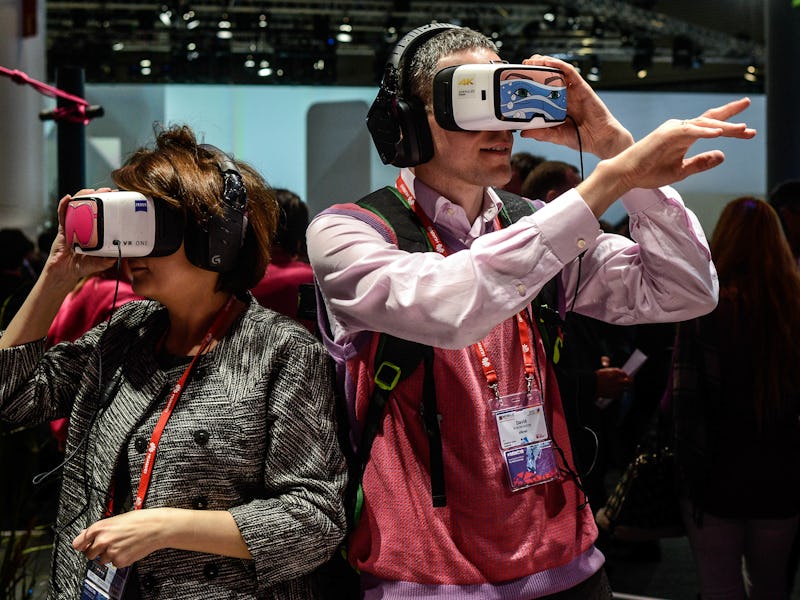Google Wants to Stop VR From Making People Act Like Jerks
Navigating the land between the real world and cyberspace is tricky.

The internet tends to bring out the worst in people — cheating, trolling, and abuse all thrive online. Google wants to make sure that when virtual reality merges the physical and digital worlds, people don’t act like jerks.
That’s why the company started Daydream Labs, a small group dedicated to observing how people interact with each other in virtual reality. On August 9, the group shared a few of its findings and explained how it’s trying to make people be nice to one another when they strap on the headset.
“As developers and designers, we are excited to build social experiences that are fun and easy to use—but it’s just as important to make it safe and comfortable for all involved,” writes Google VR user experience designer Robbie Tilton. “Over the last year, we’ve learned a few ways to nudge people towards positive social experiences.”
Here’s a video demonstrating one of the lessons Google’s learned:
Daydream Labs is starting with making sure people can’t cheat when they’re playing virtual poker. “Everyone should feel safe and comfortable in VR,” Tilton writes. “If we can anticipate the actions of others, then we may be able to discourage negative social behavior before it starts. For example, by designing personal space around each user, you can prevent other people from invading that personal space.”
Google has essentially turned being polite into a game. In another experiment, the company made it so high-fiving someone led to enjoyable fanfare, while punching someone didn’t have any effect at all. People naturally gravitated to high-fives because they wanted that little rush of dopamine that comes from a piece of technology saying they’ve done the right thing (pretty much every game uses a version of this strategy).
These experiments might seem trivial, but as virtual reality becomes more and more social, people are going to have to figure out how exactly they should behave. Working out systems that reward positive interactions is a quick way to get people to act like decent human beings.
Companies are figuring out how to use virtual reality. Some allow people to sing karaoke with a Rob Thomas hologram while others broadcast the 2016 Olympics.
Virtual reality headsets are also getting cheaper than they were before. As the hardware improves and the software expands beyond games, more people will be able to afford to step into the virtual realm.
Google is solving the last part of that equation. Hanging out in virtual reality is fun until someone decides to ruin your day by harassing you, holding their virtual hand in front of your virtual eyeballs, or cheating at a game of poker. Daydream Labs is effectively working to make sure trolls won’t be able to cross over from the internet at large, into our own reality.